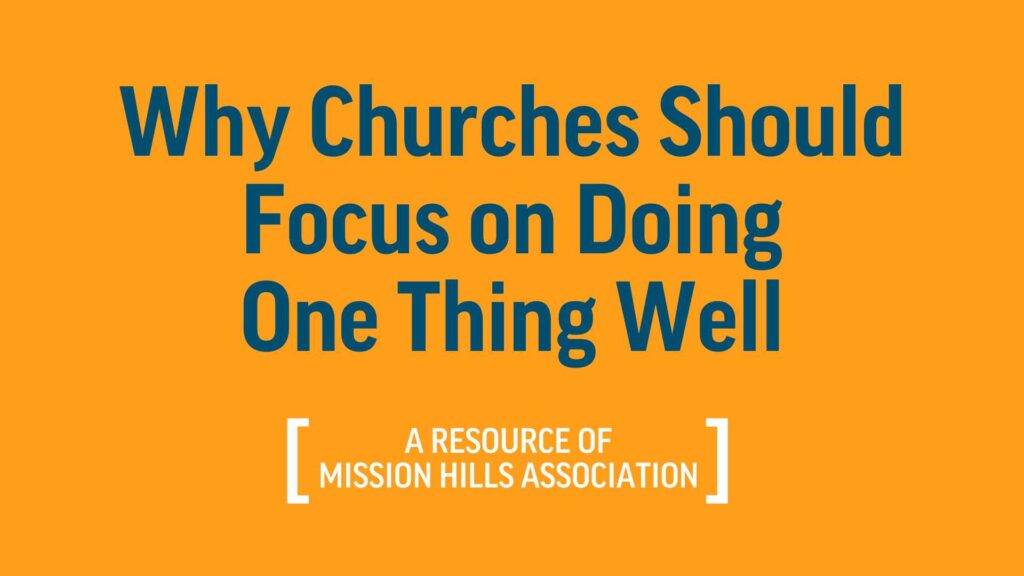
The children in our churches add life, vibrancy, and purpose to so much of the work we do. But they also aren’t the ones calling the shots, making spiritual leadership decisions, or (most of the time) asking the deep questions that church leaders are mulling over in their spare time.
It can be easy to let the way that we think about ministering to our children fall by the wayside when there are “more pressing issues” in the church. But we do our kids and ourselves a disservice if we neglect the opportunity to intentionally steward their hearts and souls. When we engage students in the spiritual disciplines of worship, community, and fellowship, we give them the chance to take ownership of their connection to the church from a young age.
There are two main elements you can focus on if you need to refresh your heart and mind as you think about creating a thriving and holistic kids ministry:
1. Church responsibility
The kids in our churches are our greatest investment and stewardship. They are the future of the Kingdom, and we want to treat them as such! This means pastors and church leaders should be mindful of kids in weekend worship, when planning events, and considering volunteer and discipleship opportunities.
In other words, we get to count them in when we plan for the life and future of our church.
Pastors don’t have to preach “kid-friendly” sermons by over-simplifying their messages or trying to sound “relevant” to the younger ears in your audience, but they can remain mindful of how what they’re saying might land with young listeners.
It also helps to be aware of how your church structures its childrens ministry, and why. If you only have nursery care during the service and all kids past preschool age attend your service week-in and week-out, you should consistently understand that young ears are listening to your words every week.
Although a 4th grader won’t pay attention to as much of the sermon as the adults in your congregation will, they will still pick up something, and they will pay attention more if they feel that what’s being taught should actually matter to them.
Your preaching may be a bit different if no school-aged kids are typically in Sunday service. In that case, you can be extra aware on the days when kids are involved in the congregation (like a Family Sunday, for example), and steer clear of content that may be overly confusing or sensitive for little listeners. You can incorporate children into your service in additional ways, such as giving them “kids bulletins” with coloring sheets and easy-to-follow sermon guides, so they can color and listen as they sit.
The point of this isn’t to put a leash on what pastors can and can’t say, but to remember that even though small, the children around you at church are listening, learning, and growing into active participants in your congregation.
2. Parent responsibility
There’s a balance at hand when we talk about kids’ ministry, because there’s such a wide variety in the ways families think about their involvement in their children’s spiritual lives.
You may know a parent who wants to be deeply involved in every element of what their child is learning and doing at church, and then you can turn around and talk to a parent who is simply relieved to have an hour that their child is being entertained.
How do we bridge this gap between parents and their kid’s discipleship?
The way that you frame your church’s children’s ministry plays a huge role in the way that parents think about it. Although you can’t force a parent to feel or think a certain way about their involvement in or the way they view children’s ministry, you can set the tone as you talk about and approach it from the pulpit, announcements, and in church media.
Children’s ministry is more than babysitting, but it also isn’t a child’s primary mode of discipleship – it exists as a supplement to the important work of teaching children truth within their family context.
The children’s ministry at your church is only enabled through parents stewarding their children – one hour a week of children’s church isn’t going to make the same difference that consistent discipleship within a home will.
It’s important to not shame families who aren’t believers or aren’t aware of what family discipleship looks like, though. Your children’s ministry can implement ways to encourage parents to carry discipleship into their homes throughout the week by educating parents on what their children learned, providing ideas for conversation starters about the lesson, or creating family discipleship resources for your congregation.
Church leaders have the immense privilege to be thoughtful about incorporating children into the life of their church, and incorporating the Gospel into children’s lives outside of church. This way of living life as a church and as individual families doesn’t happen overnight, but through steady teaching, leading by example, and providing opportunities for families to be continually learning.
Interested in learning more about Mission Hills Association and gaining access to our members-only resources? Contact us today!




